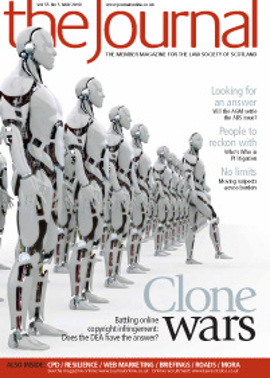When is a "deed" not a deed?

In Low & Bonar plc v Mercer Ltd [2010] CSOH 47 (1 April 2010), Lord Drummond Young considered the amendment power in the Low & Bonar Group Retirement Benefits Scheme and, in particular, what was meant by “deed”. He did so in the context of purported amendments to comply with the European Court of Justice decision in Barber v Guardian Royal Exchange Group [1990] ECR I-1889 to equalise retirement dates for male and female members, to comply with anti-discrimination provisions of the then article 119 of the EC Treaty.
Record by minute
Following Barber the defenders advised on changes required to comply with the decision, including on consultation with members and amendment of the group scheme documentation.
The amendment power in the rules provided that the sponsoring company “may… with the consent of the Trustees by deed alter” the provisions of the governing deed or rules.
After considering advice received, the sponsor decided at a board meeting on 5 March 1991 to change the retirement date for male and female members to their 65th birthday. This decision was minuted. Meeting on 5 July 1991, the trustees noted the sponsor’s decision and resolved that the changes be made with effect from 1 July 1991, the date specified by the sponsor. The trustees minuted their decision.
Both the sponsor and the trustees claimed that the defenders were responsible for ensuring that appropriate documentation to carry through the changes was put in place. A formal deed was not executed till 2002. As there must be no discrimination in the period between the date of the Barber decision and the date of valid amendment to equalise retirement dates, the more favourable treatment would require to be given to all members (regardless of sex), with considerable cost implications for the sponsor if equalisation did not occur until 2002.
The pursuers claimed that the defenders were negligent, and sought (1) declarator that retirement age for males and females was equalised in 2002 on the execution of the formal deed, and (2) damages on the basis of breach of contract and negligence.
Two views of “deed”
Having noted the trust basis for pension schemes and the interpretation of scheme documentation, Lord Drummond Young considered pension schemes to be essentially contractual in nature. As such, words used should be given their natural meaning in the context of the documentation with a commercially sensible construction in light of the underlying commercial purposes of the scheme and attempting to give it practical effect. He wished to avoid an “over-legalistic approach”.
In considering what constituted a “deed”, he looked at the English position and in particular Dubery [2006] EWHC 1426 (Ch); [2007] EWCA Civ 771 (which held formal documentation was required). He declared that in English law the word “deed” has a technical meaning which does not apply in Scots law. The term was not defined in the trust deed and rules governing the scheme. He considered the law relating to the requirements of writing, stating that before the Requirements of Writing (Scotland) Act 1995, an amendment to the governing deed and rules would not have been classified as an obligatio literis and so would not have had to be in formal writing.
He held that the minute of the sponsor’s board meeting, duly signed by the chairman, was a formal document and that as there was trustee consent, evidenced by the subsequent signed trustee minute, the scheme had been amended from 1 July 1991. He dismissed the action.
Comment
There is logic to Lord Drummond Young’s reasoning, even though it does not reflect what would almost certainly have been the drafter’s intention, and it does offer practical assistance which is welcomed. It will certainly be viewed as a satisfactory outcome for all of the parties involved in this case.
One interesting point is that the scheme was held amended from a date before the trustees even considered the issue. The date of signing of the minutes, as opposed to the date of the meetings, is another interesting area. Amendment was also considered recently by Lord Menzies (William Grant & Sons Ltd v Mercer Ltd [2010] CSOH 52). Also, members were not represented.
The case sets out the requirements for compliance with this particular type of amendment power and, of course, has wider application than simply equalisation amendments. There are other types of amendment power and the judgment may well be clarified by future cases.
The next step for trustees and sponsors should be to check the position in their scheme. Unfortunately it is likely that many purported amendments will not meet the requirements set out in Low & Bonar.
In view of the requirement for certainty for trustees and scheme sponsors, as well as auditors, actuaries and the Pension Protection Fund, it may be that we will see an increase in actions for declarator in the future.
- June Crombie is a partner with Biggart Baillie LLP
In this issue
- Pro bono: making a difference to people's lives
- Goodbye sick note
- Like tears in the rain
- On level ground?
- Keeping tabs on the EU
- Counterstrike
- Supporting excellence
- The final roll of the dice
- Death and taxes
- Pick of the bunch
- Train to gain
- Law reform update
- Meeting the Deans
- Family feeling
- From the Brussels office
- Bank liaison back on track
- Resilience is the key
- Cast your net
- Outside the box
- Ask Ash
- Are you... experienced?
- Handover standoff
- Investing in dispute
- When Nature takes over
- Spilled milk?
- Armed with the law
- When is a "deed" not a deed?
- Blocked in
- Website review
- Book reviews
- Calling time on mora
- Raiders of the lost roads?






